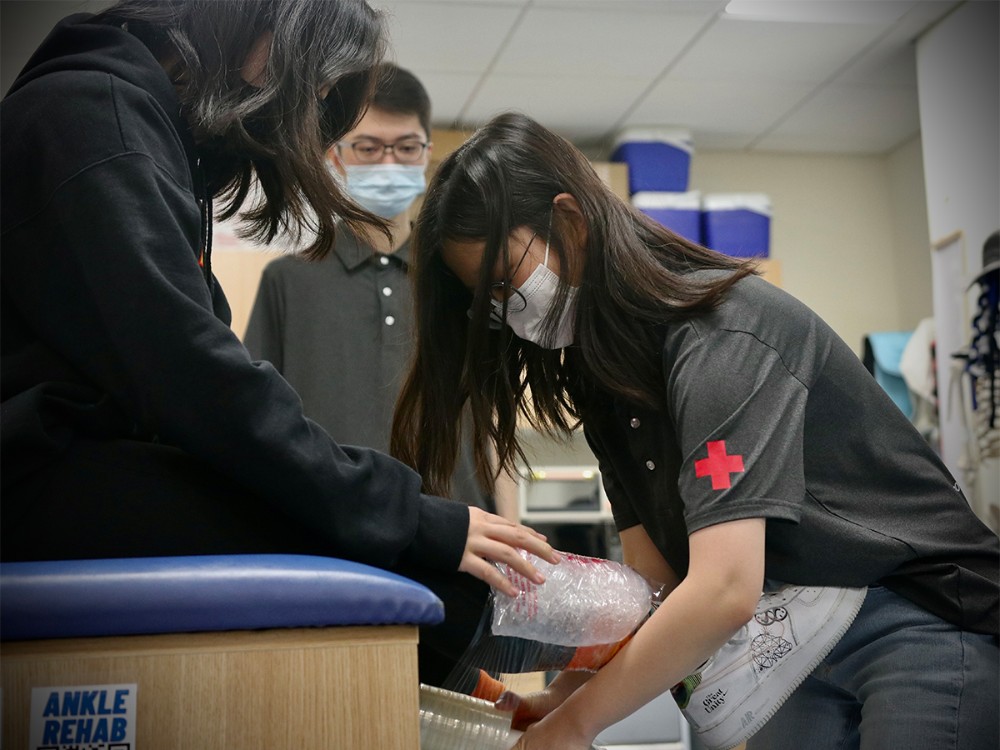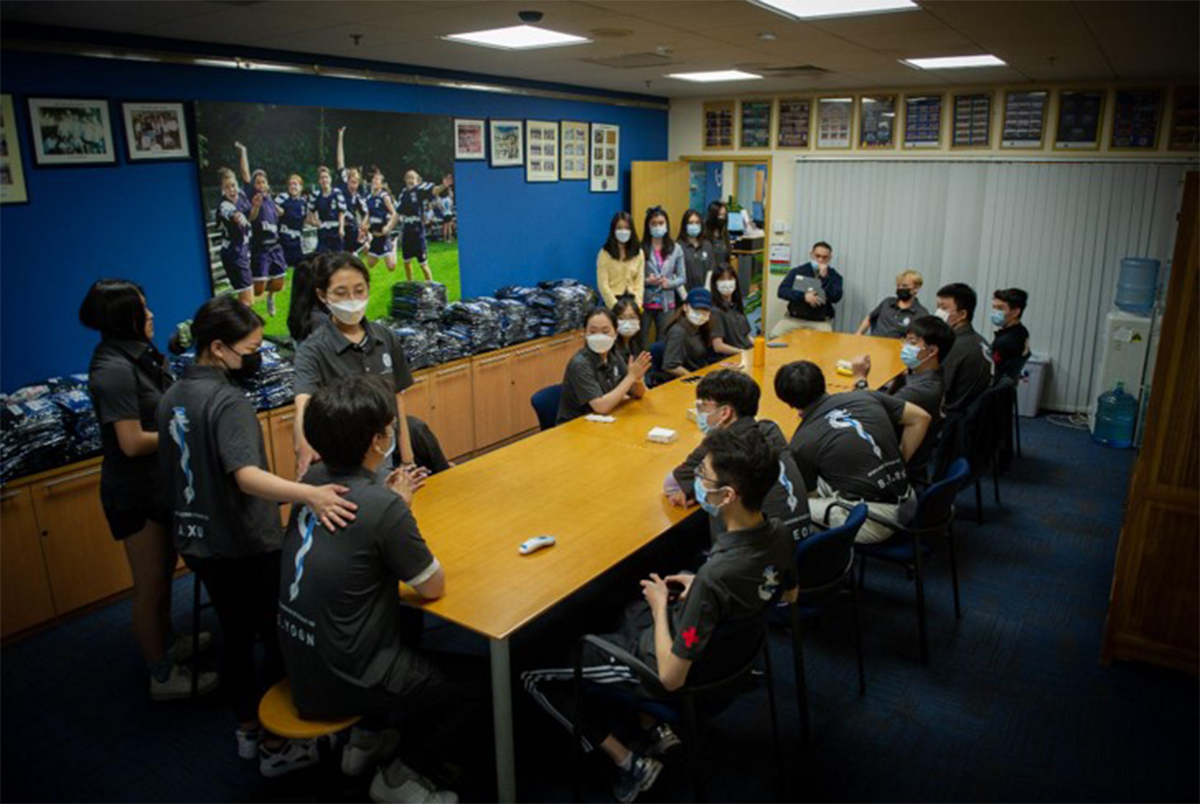Q&A with ISB Sports Medicine Club Executives

By Nick Yates and editing by Yvette Ferrari, ISB Communications
In ISB's co-curricular program that's recently launched for 2022-2023, students are able to explore and discover their passions. Our new Strategic Plan has made a priority of using ISB's rich resources to empower learners to purpose and compassion. We caught up with two Grade 12 executives from ISB's Sports Medicine Club (SMC) to find out how the club provides them with challenging and joyful learning.
What skills have you gained from participating in Sports Medicine Club?
HaeWon C. (HC)
HC: I have learned practical skills while growing as an individual. SMC requires us to learn skills that we can use on our student-athletes like wrist taping, finger tapes, and more. Additionally, I could mature as an individual because the club promotes behaviors like confidentiality and reflection which allows me to become conscious of my behaviors such and consequences of them.
Jiyu L. (JL)
JL: Through SMC, I have learned about human physiology and how to treat injured student athletes. During the clinic hours, I learned that in-class and real-life application are very different. For instance, when we learned taping, foam rolling, and ice-packing skills during club hours, no one is in a hurry, and no one is injured. On the other hand, during the clinic hours, I must be responsible of the treatments and instructions that I give to the student athletes. I also learned that to prepare myself for real-life applications is to practice more on in-class applications or run simulations of the actual situation on the field during practice.
Tell us about an example of real-world learning as a member of Sports Medicine Club.
HC: We have opportunities to assist our athletic trainer [Randen Morisako] after school. We practice our skills and apply them to the athletes but there are times when an athlete with a new injury will drop by. We mainly observe our athletic trainer as he tries to diagnose but afterwards he will debrief with us and ask us questions about the injury. These occasions encourage us to critically think about what we saw and apply the knowledge we learned during meetings as well as understanding why Mr. Morisako did certain tests.
JL: When we learn about ankle taping, for example, we would first watch [Mr. Morisako's] demonstration and try to emulate his ankle taping on another SMC student's ankle. After several practices, Mr. Morisako will sign off the skill on our skill-sheet, meaning that we are eligible to perform it on an actual injured athlete. During clinic hours, we then would apply the ankle taping job we learned during club hours on an injured athlete. When there are games happening during the clinic hours, we go around all the fields to check if any injuries occurred and review where all the AED [automated external defibrillators] and spinal boards are in the school.

With co-curricular activities and service learning, ISB tries to give students lots of opportunities to explore and discover their passions. How have your perceptions of sports medicine changed since you joined the club?
HC: I joined this club because of my interest in the medical field. I was aware that sports medicine was not like the image we typically associate medicine with like surgeries and hospitals. However, I still joined because I really wanted to apply some sort of medical skills in real life no matter how simple they were. It gave me the opportunity to help people around me while beginning to develop a mindset appropriate for work in medicine. I have stayed with the club for now four years and it has expanded my perspective on medicine. I have come to believe that this knowledge will help my patients in the future.
JL: I joined SMC because I was interested in the medical field and thought that it was a great opportunity to experience internship-based activities where we shadow an athletic trainer. Before joining the club, I considered sports medicine as general medicine and did not differentiate them since 'sports medicine' is an unfamiliar field outside the US. But the more I learned in the club, my perception of sports medicine narrowed down from just the medical field to a more specific field where we focus on the treatments and rehabilitations of athletes.
ISB is an extraordinary school, made so by a tradition of educational excellence spanning 45 years. Establishing, nurturing, and growing such an exceptional learning community has been and remains intentional; we work hard to build strong relationships so our learning is at its best.
